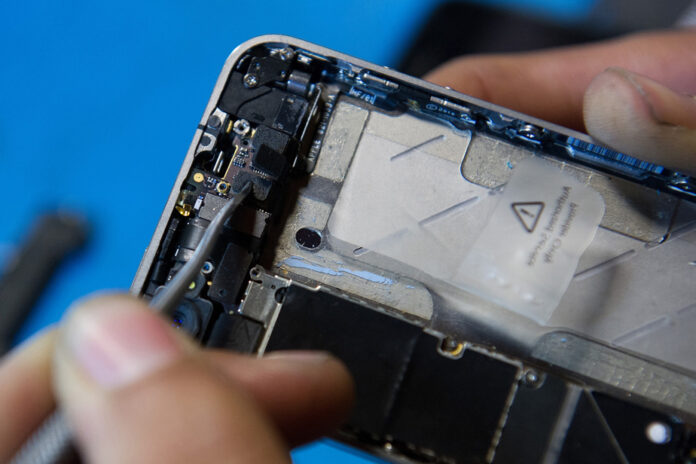Planned obsolescence is one thing, the minimum lifespan without breakage and the right to repair are other, even more important. The fourth industrial revolution that was supposed to produce perfect products has never sent so much waste to landfills around the world.
The reason: Yes, perfect goods that arrive at your doorstep delivered by Amazon are flawless and functional when you take them out of their boxes. Wait a minute…flawless? Well no, their flaws: they mostly break as soon as the warranty expires. And this warranty is very short considering their prices. This, because humans know very well how to adjust the lifespan of a product by precisely calculating what is called the MTBF (Mean Time Before Failure) of each part that makes up the product.
So, for the sake of our dumps, two solutions are possible:
1- We force a longer basic warranty from a few months to a minimum of three or even five years without having to buy an extended warranty.
2- We force all manufacturers to design goods that can be repaired at reasonable cost, regardless of the breakage.
With the fourth industrial revolution precisely, an industrialist can manufacture any part to measure and on demand with robots instead of storing spare parts for 7 to 10 years as currently. But that, they will not say, because they would make less profit…
And how come the Voyager 2 spacecraft launched in 1977 still works and my wireless headphones only last a few months?
I am pleased to know that Minister Simon Jolin-Barrette favors the right to repair one’s own devices. But that will not apply in the other provinces and I would like them to make these legislative changes as well.
This will, of course, allow independent workshops to have access to spare parts and technical repair manuals to carry out these repairs. Me, I want to fix everything I can, and I can, most of the time. But the parts are not accessible to me and the authorized workshops do not want to sell them to me.
There is a local repair economy to be redeveloped, because it once existed. My father was an example. A graduate as an electronics technician from the École technique de Montréal in 1957, he opened a repair shop for televisions, radios and other electrical appliances in Vieux-Longueuil in 1960. He repaired everything, even toasters. He closed shop in 1994, at a time when spare parts were scarce. But he continued to make repairs at home, using cannibalized parts from non-functioning appliances. Today, I do the same to repair my household appliances and restore old typewriters, clocks and watches.
We agree that the objective is not so much to protect consumers as to reduce the consumption of resources and avoid filling up our landfills. It is not only the manufacturers who are guilty, they mainly respond to a demand. A demand from consumers who like change and sprucing up their goods. A tax on the contents of the trash bin would be most beneficial in this regard. In addition to forcing consumers to opt for better quality products, even if it means buying less, this would also have the effect of forcing the second-hand market. We throw away lots of things that are reusable because we’re too lazy to advertise a $10 bookcase, it’s easier to put it in the trash.
Recently I had a problem with my computer which I was able to fix on my own, but in the process the program attached to my HP printer got deleted. So I searched the net to find it. Well I learned that HP retired the program because this printer is over 10 years old. It is however still functional since I can print from my tablet, but each time I want to use it from the computer, I have to send myself the document on the tablet to be able to print it. Likewise, scanning has become dysfunctional. Is this ill will on HP’s part or an unfair tactic to force me to buy a new printer? I let you judge.
Glad to see the government of Quebec finally taking an interest in the issue.
My concern ? His first messages seem to indicate that we are mainly interested in the planned obsolescence of consumer products. A mistake in my opinion. Obsolescence is normal and natural. Things break. The problem is when the consequences are amplified by removing all options for repair or reuse from the consumer who, ultimately, is supposed to be the owner of the goods he buys.
This culture where you buy goods, but you are not the free owner to do what you want with them, is quite incredible when you really think about it. I should have the right to have what is mine repaired. Soon we won’t be able to change our spare tire ourselves after a flat tire because the manufacturer won’t let us and wants us to call their customer service department for $400 instead? Once the product is purchased, it no longer belongs to him. At least it shouldn’t, unlike what is happening today.
If we were always able to have our goods repaired (or repaired ourselves), we would quickly realize which products are unreliable. Market forces would push manufacturers to maintain their reputation and offer products that are reliable or easy to maintain.















